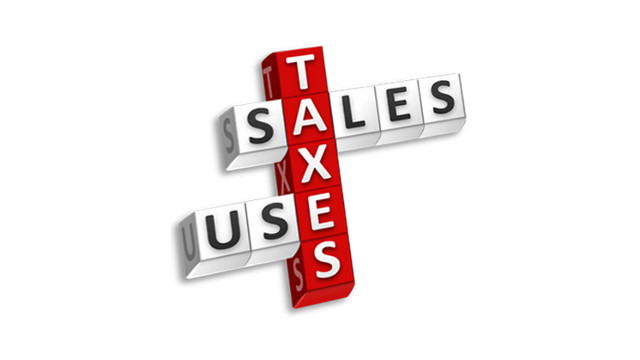The California Department of Tax and Fee Administration (CDTFA) is being sued for “crushing thousands of small business owners” by holding Fulfillment by Amazon sellers liable for back sales tax. The Online Merchants Guild, a trade association for small online businesses, is the plaintiff.
The language of the suit is at times inflammatory: It warms up by referencing “California’s massive subsidization of Amazon, which CDTFA laundered through the state sales tax system.” However, the issue it raises is interesting: Should the CDTFA be able to hold Fulfillment by Amazon (FBA) sellers liable for back sales tax based on inventory stored in the state, perhaps unbeknownst to them, in Amazon warehouses?
Marketplace facilitators, not marketplace sellers, are now liable for California sales tax
Marketplace facilitators like Amazon, eBay, and Walmart have been required to collect and remit tax on all sales made through their platforms, including third-party or marketplace sales, since October 1, 2019. Prior to that, marketplace facilitators weren’t responsible for the tax on marketplace sales because they weren’t considered the retailer. In the eyes of the state, the individual marketplace sellers were the retailers.
Prior to April 1, 2019, when California’s economic nexus law took effect, marketplace sellers and other retailers generally couldn’t be required to collect and remit California sales and use tax unless they had a physical connection to the state. States lacked the authority to tax remote sales until the Supreme Court of the United States overruled the physical presence rule in South Dakota v. Wayfair, Inc. (June 21, 2018), clearing the path for economic nexus. Under California’s economic nexus law, remote retailers must register to collect and remit sales tax once their annual sales into the state exceed $500,000.
Thus, prior to April 1, 2019, a retailer could be required to collect and remit California sales tax only if it had a physical tie to the state — like inventory held for sale in an Amazon fulfillment center.
Inventory creates a physical presence
Last year at about this time, Philadelphia-based FBA seller Brian Freifelder received a disturbing notice from the CDTFA. It said he could owe California up to $1.6 million in back sales tax, plus penalties and interest, because he had inventory stored for sale in Amazon warehouses in the state.
The CDTFA eventually decided the $1.6 million estimate was “higher than it should have been.” However, it apparently didn’t clear Freifelder of all past sales tax liability. Freifelder is a member of the Online Merchants Guild (OMG) and one of several FBA sellers mentioned by name in the lawsuit filed against the CDTFA.
The OMG isn’t arguing FBA sellers like Freifelder didn’t have inventory stored for sale in California during the period in question, nor does it claim inventory isn’t physical in nature. Instead, it insists Amazon — not the individual sellers — should be liable for any past tax owed on marketplace sales, as they are now.
FBA sellers don’t control their merchandise
According to the compliant, “FBA generally works as follows. Third-party merchants, such as OMG members, source products for possible sale on Amazon. Merchants propose a sale price to Amazon. Amazon has full discretion to approve the products for sale, and to approve or reject the price. … Amazon also retains editorial control over product listings. Amazon also controls where and how products are listed on the site. …
After Amazon approves a merchant’s proposed listing, Amazon will direct the merchant to ship the products to a warehouse of Amazon’s choosing. From there, Amazon may keep the goods in that warehouse, or ship them anywhere for positioning. …
After a consumer purchases a product in Amazon’s store, Amazon is responsible for selecting the warehouse from which to draw the product, packing the product, and shipping it to the consumer. Amazon also collects payment, and — after holding onto the funds for several weeks — credits the merchant’s account. On FBA sales, Amazon charges merchants a commission that can reach 45%.
Amazon is in privity with consumers, whom Amazon deems the company’s ‘customers.’ By contrast, under the terms of merchants’ agreement with Amazon, merchants are not in privity with consumers. Amazon generally forbids merchant contact with consumers.”
The complaint goes on to note that once OMG members transfer custody of their goods to Amazon, “they have no say in where Amazon moves the goods,” or how Amazon fills orders (i.e., from where it selects inventory to ship).
How far back can the CDTFA reach?
Amazon has been required to collect and remit California sales tax on direct sales since September 15, 2012, because of its warehouses and fulfillment centers in the state. According to the complaint (page 15), the CDTFA is now going after FBA merchants “for retrospective taxes back to 2012.”
California has a lookback period of eight years, meaning the CDTFA can generally reach back eight years to assess overdue use tax. However, a bill passed in 2019 afforded some relief to qualifying marketplace sellers. It prohibits the CDTFA “from assessing sales and use taxes on sales made by a ‘qualifying retailer’ prior to April 1, 2016, and requires the CDTFA to relieve any penalties imposed on a ‘qualifying retailer’ with respect to sales made for the period April 1, 2016 to March 31, 2019.”
To qualify for this protection, a retailer must meet all the following conditions:
- Not register with the CDTFA prior to December 1, 2018
- Not file sales or use tax returns or make sales or use tax payments prior to being contacted by the CDTFA
- Voluntarily register with the CDTFA, and by September 25, 2019, file completed tax returns for all tax reporting periods for which a determination may be issued (i.e., on and after April 1, 2016)
- Engage in business in California “solely because you used a marketplace facilitator to facilitate sales for delivery in this state and the marketplace facilitator stored your inventory in this state”
The CDTFA could reach back beyond April 1, 2016, for marketplace sellers that didn’t take advantage of the above.
The complaint was filed September 29, 2020, and can be found at Online Merchants Guild v. Maduros (hat tip to Bloomberg).
Worried you may have a sales tax obligation in a state where you’re not registered? Avalara’s free sales tax risk assessment can help you find out.
=========
Gail Cole has been researching, writing, and reporting tax news for Avalara since 2012. She’s on a mission to uncover unusual tax facts and make complex laws and legislation more digestible for accounting and business professionals — or anyone interested in learning about tax compliance. Get more sales tax news from the Avalara blog.
Thanks for reading CPA Practice Advisor!
Subscribe Already registered? Log In
Need more information? Read the FAQs
Tags: Sales Tax, Small Business




